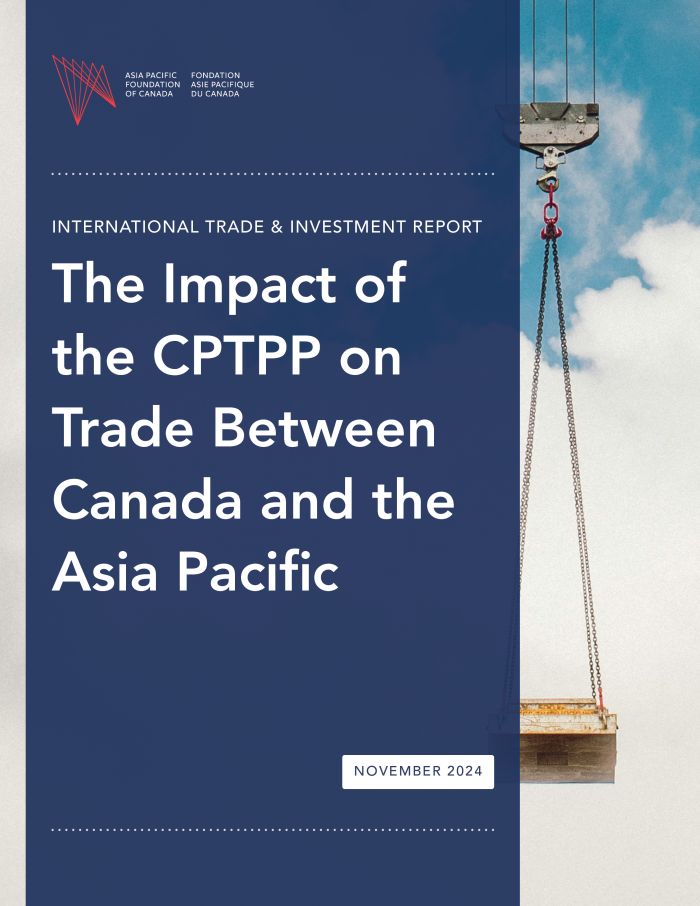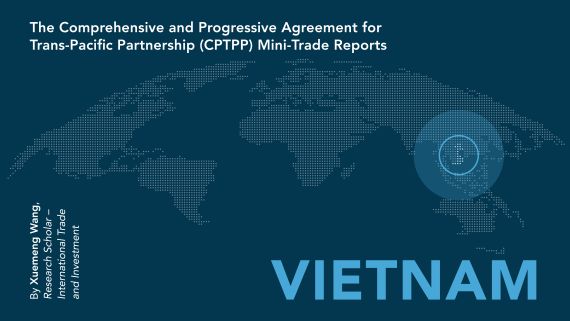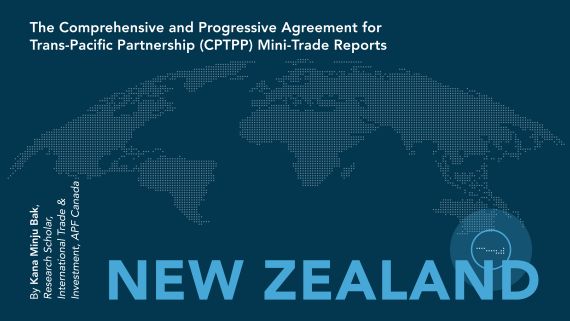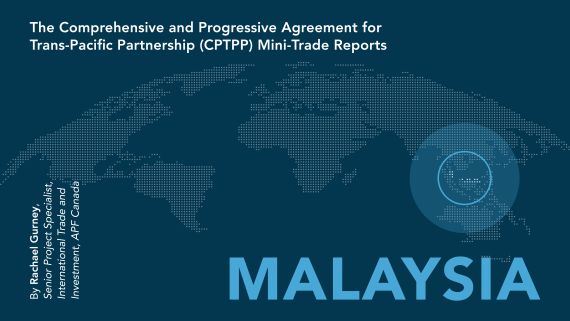The Comprehensive and Progressive Agreement for Trans-Pacific Partnership (CPTPP), ratified by Canada in December 2018, is a formative agreement facilitating closer economic connections between Canada and other CPTPP members, including Mexico, Peru, Chile, and the seven Asia Pacific-based members of the CPTPP, or the AP7. The agreement has significantly impacted Canada’s two-way investment flows with the AP7, which we explored in our Investment Monitor report released in October. This report examines the merchandise and services trade between Canada and the AP7 and between Canada’s provinces and the AP7.
Leveraging information provided by Statistics Canada, the report finds that merchandise trade between Canada and the AP7 grew from around C$214.3B prior to the CPTPP (2014-18) to more than C$280B following ratification of the agreement (2019-23), a 31 per cent increase. Canada’s services trade with AP7 economies (excluding Brunei due to data availability) grew at a much slower pace, increasing from around C$46.6B (2015-18) to around C$50.4 (2019-23), an eight per cent increase. This report expands on the details of these trade relations as noted in the Key Takeaways below.
Key Takeaways:
1. Overall, the CPTPP has enhanced Canada’s merchandise and services trade with the agreement’s seven Asia Pacific economies: Australia, Brunei, Japan, Malaysia, New Zealand, Singapore, and Vietnam (the AP7). In the five years post-ratification (2019-23), Canada’s merchandise trade with these economies grew by 38% (from around C$48B in 2018 to more than C$66B in 2023), primarily driven by Canadian imports of consumer goods and industrial machinery from the AP7 economies. Canada-Vietnam trade has seen the most growth, with merchandise trade increasing by 117%, driven primarily by Canadian imports.
2. Since the CPTPP’s ratification, Canada’s merchandise trade with the AP7 has outpaced its trade with the other CPTPP members — Chile, Mexico, and Peru — reversing the pre-CPTPP dynamic. Canada’s merchandise trade with the AP7 grew by 38% from 2019 to 2023, while its merchandise trade with the other CPTPP members increased by 29% during the same period. Significant gains in Canada-AP7 trade can be attributed to Canada not having existing free trade agreements (FTAs) with any of the AP7 countries, while it already had agreements with Chile, Mexico, and Peru.
3. Overall, the CPTPP has had a more limited impact on Canada’s services trade with AP6 (the Asia Pacific members minus Brunei, as service trade data for Brunei are not available) compared to merchandise trade. Canada-AP6 service trade has increased by 6% since the CPTPP’s ratification, from around C$13B in 2018 to C$13.8B in 2022. Commercial services were Canada’s leading service export to the AP6, while its main imports were transportation and government services.
4. While Canada’s services trade with the AP6 is higher in terms of total value than its combined trade with Chile and Mexico, the two had similar growth trajectories. Pre-CPTPP, Canada’s services trade with the AP6 (C$10.5B in 2014) was higher than with Chile and Mexico (C$4.3B) and remained higher in 2022, with Chile accounting for C13.8B and Mexico C$6.2B. Since the CPTPP’s ratification, the gap between Canada’s services trade with the AP6 and Mexico and Chile has remained relatively stable.
5. The global pandemic negatively impacted Canada’s merchandise trade with the AP7 and services trade with the AP6. Although the COVID-19 pandemic negatively impacted Canada-AP7 merchandise trade in 2020, trade levels rebounded by 2022, signalling the resilience of these relationships. COVID-19 had a more prolonged impact on services, with 2022 services trade volumes between Canada and AP6 remaining below 2019 trade volumes. Canada-Japan merchandise and services trade was the most affected — with merchandise trade decreasing by 11% and services trade decreasing by 27% between these two economies from 2019 to 2020.
6. While all provinces and territories have been active in merchandise trade with the AP7, three provinces — British Columbia, Ontario, and Quebec — accounted for more than 82% of two-way merchandise trade with the AP7 from 2019 to 2023. Ontario’s merchandise trade is import-driven, primarily in electronics and motor vehicles and parts. British Columbia and Quebec maintained a relatively balanced trade relationship with the AP7 from 2019 to 2023, generally importing slightly more than exporting into the region (driven by Canadian imports of consumer goods). Meanwhile, Alberta and Saskatchewan, which accounted for 12% of two-way merchandise trade with the AP7, have experienced export-driven trade, primarily in agriculture and energy products.









